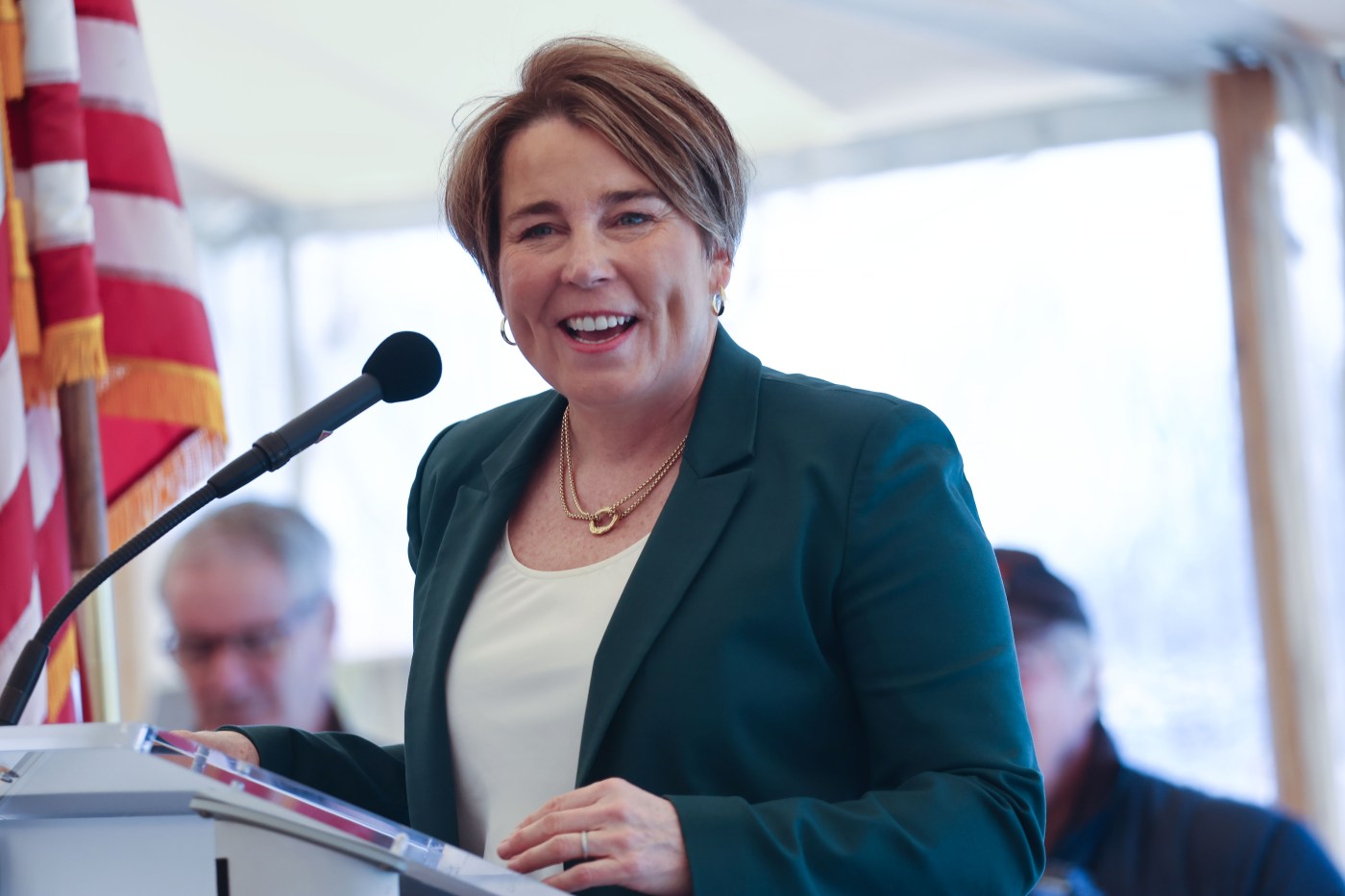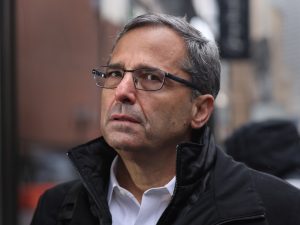
Gov. Healey in ‘extremely vulnerable position’ ahead of 2026 election, internal poll from GOP challenger says
Gov. Maura Healey is entering the 2026 election cycle in an “extremely vulnerable position” after facing challenges in immigration, affordability, energy, transportation, and housing, according to an internal poll paid for by Republican gubernatorial candidate Mike Kennealy.
The survey of more than 800 likely Massachusetts voters conducted between Feb. 11-12 by Opinion Diagnostics found Healey had a 45% approval rating but faced more critical opinions from voters when questions centered on housing, taxes, migrants, and the economy.
In a memo accompanying the poll, Brian Wynne, the head of Opinion Diagnostics and former campaign manager for Gov. Charlie Baker, said Healey has a flat favorability and flat job approval as well as “net disapproval” of her handling of key issues like immigration and housing.
“A plurality of voters believe that Healey’s job performance warrants a change in governor,” Wynne said, according to a copy of the poll obtained by the Herald. “While they are open to replacing the chief executive of the commonwealth, voters will not accept just any alternative.”
A campaign spokesperson for Healey declined to comment Wednesday.
The poll found that Kennealy, who launched his campaign against Healey earlier this month, has a better chance at beating the first-term Democrat from Arlington than potential Republican challenger Brian Shortsleeve, a venture capitalist and the former chief administrator of the MBTA.
Pollsters provided respondents brief biographies of Kennealy and Shortsleeve as well as “information likely to be utilized in negative advertising by Healey and her allies,” according to the memo.
Kennealy earned 68% of support from voters when informed about his time working for the distressed Lawrence Public Schools and another 61% from voters who were told about his work helping “restart the Massachusetts economy in the wake of COVID-19,” according to the poll.
The former housing and economic development secretary under Baker was a key figure in the former governor’s controversial plan to reopen Massachusetts in phases. The tiered reopening plan came after the Baker administration shut down the state’s economy at the start of the COVID-19 pandemic.
“When the poll assessed a hypothetical matchup between Maura Healey and Mike Kennealy, she narrowly led 37.5% to 35.9%. This 1.6% margin is a statistical tie well within the survey’s margin of error. Among the 27% of voters who are undecided, a plurality believe Healey does not deserve re-election,” the memo accompanying the poll said.
A separate February poll of 700 Massachusetts residents conducted by the University of Massachusetts Amherst found Healey had a 52% overall approval rating.
The same survey showed that only 15% of respondents would back Kennealy over Healey, and 12% would vote for Shortsleeve. But in each instance, a large share of those polled said they were still unsure of who they would support in the 2026 gubernatorial election.
Any Republican challenging Healey in the general election next year will face a series of hurdles, including name recognition, matching Healey’s ability to fundraise, and walking a political tightrope with President Donald Trump in the White House.
Healey has more than $2.8 million in her campaign account after raising over $404,000 in March, according to state data. Kennealy pledged to seed his campaign with $2 million from his personal wealth.
The poll conducted by Opinion Diagnostics for Kennealy found that Shortsleeve would have a tough time beating Healey based on his “credentials, policy positions, and past political activity.”
In the poll memo, Wynne said Shortsleeve’s time at the top of the MBTA, a transit authority that has faced myriad high-profile issues, is “fatal” to his potential candidacy.
Shortsleeve also held a fundraiser for Florida Gov. Ron DeSantis’ presidential bid in Cotuit that helped the Republican raise more than $500,000.
Shortsleeve was appointed to DeSantis’ national finance committee for his presidential campaign months after the Florida governor approved a six-week abortion ban in the state.
The poll paid for by Kennealy asserts that 55% of likely Massachusetts voters are less likely to vote for Shortsleeve because of his work with DeSantis.
“The 15-second ad Healey would use to eviscerate Shortsleeve writes itself, and would be highly effective with the 39% plurality of undecided voters who are less likely to vote for a DeSantis supporter and the 54% of undecided voters who are more likely to vote for a pro-choice candidate,” the poll memo from Opinion Diagnostics said.
Holly Robichaud, a strategist working for Shortsleeve, said Kennealy’s campaign is “obviously experiencing a failure to launch. Robichaud also said Kennealy does not need a poll to “know that Republican voters will never nominate the cheerleader in chief for the MBTA Communities Act,” a controversial transist-oriented zoning law Kennealy helped implement.
Kennealy’s campaign, Robichaud said, is “desperately attacking someone who is not even in the race.”
“As a Marine, job creator and reformer who in record time stripped waste, fraud and abuse out of the MBTA and led it to its only balanced budget in decades, Brian Shortsleeve would be the ideal contrast to Maura Healey and her failed policies that have exploded the budget, made Massachusetts among the least affordable states in the nation, and delivered us a disastrous migrant crisis,” Robichaud said. “The bottom line is you can’t defeat a Healey with a Kennealy.”


